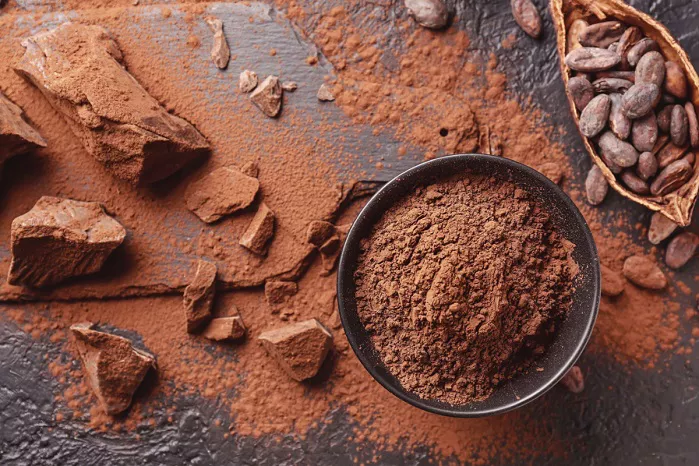Coffee, the beloved beverage that graces countless mugs around the world, is often surrounded by myths and misconceptions. In this article, we will delve into the truth behind some of the most common misunderstandings about coffee. From its impact on health to its supposed addictive nature, let’s uncover the reality behind these misconceptions and gain a deeper understanding of the complexities that surround the world’s favorite caffeinated drink.
10 Misconceptions About Drinking Coffee You Know
1. Coffee: A Dehydrating Dilemma?
One of the prevalent misconceptions about coffee is that it is a dehydrating beverage. Contrary to popular belief, moderate coffee consumption does not lead to dehydration. While caffeine is a diuretic that can increase urine production, the fluid content in coffee contributes to overall hydration. The key is moderation—enjoying your coffee in a reasonable amount alongside water can help maintain proper hydration levels.
2. Coffee Causes Insomnia: Separating Fact from Fiction
Another misconception often heard is that drinking coffee, especially in the afternoon or evening, can lead to insomnia. While it’s true that caffeine is a stimulant that can interfere with sleep, the timing of your coffee consumption plays a significant role. Consuming coffee in moderation and avoiding it close to bedtime can help mitigate the potential impact on sleep. Understanding your body’s sensitivity to caffeine is essential in finding the right balance.
3. Coffee Stunts Growth: A Tall Tale Dispelled
The belief that coffee stunts growth has been passed down through generations, causing concern among parents. However, scientific evidence does not support this notion. Coffee, when consumed in moderation, does not have any adverse effects on bone health or growth. The idea that coffee stunts growth is more likely rooted in historical associations with improper nutrition rather than the beverage itself.
4. Decaffeinated Coffee is 100% Caffeine-Free: A Partial Truth
Many coffee drinkers turn to decaffeinated coffee with the assumption that it is entirely caffeine-free. However, decaffeinated coffee does contain some caffeine, albeit in smaller amounts compared to regular coffee. The decaffeination process removes the majority of caffeine, but it’s essential to be aware that a residual amount may still be present. Individuals sensitive to caffeine or aiming for complete avoidance should consider this when opting for decaffeinated coffee.
5. Coffee Causes Heart Palpitations: Caffeine Sensitivity
Some people associate coffee consumption with heart palpitations, attributing the sensation to the caffeine content. While caffeine can increase heart rate, moderate coffee intake is generally safe for most individuals. Heart palpitations may be more pronounced in those sensitive to caffeine or those consuming excessive amounts. Understanding your caffeine sensitivity and adjusting your coffee consumption accordingly can help prevent this misconception from causing unnecessary concern.
6. Dark Roast Coffee is Stronger: A Bold Misunderstanding
The color of coffee beans does not determine the strength of the brew. The misconception that dark roast coffee is stronger than light roast is a common misunderstanding. In reality, the strength of coffee is influenced by factors such as the coffee-to-water ratio, brewing time, and grind size. Dark roast coffee tends to have a bolder flavor due to the longer roasting process, but it does not necessarily contain more caffeine than its lighter counterparts.
7. Coffee Causes Anxiety: A Relationship to Monitor
The idea that coffee causes anxiety is not entirely unfounded, as caffeine is a stimulant that can increase alertness. Individuals prone to anxiety or sensitive to stimulants may experience heightened anxiety levels with excessive coffee consumption. However, moderate coffee intake is generally well-tolerated by most individuals and does not cause anxiety. If you are concerned about the impact of coffee on your anxiety levels, it’s advisable to monitor your intake and consult with a healthcare professional if needed.
8. Coffee is Highly Addictive: A Gradual Tolerance Myth
While caffeine is a stimulant that can lead to physical dependence, the notion that coffee is highly addictive is often exaggerated. Regular coffee consumption can result in mild physical dependence, leading to withdrawal symptoms such as headaches and irritability if abruptly discontinued. However, this dependency is generally considered mild compared to substances with more severe addictive potential. Gradual reduction or moderation can help manage potential withdrawal symptoms.
9. Coffee Causes Digestive Issues: A Brewing Misconception
Some individuals associate coffee with digestive issues, such as acid reflux or stomach discomfort. While coffee can stimulate stomach acid production, the impact varies among individuals. Choosing low-acid coffee options, such as cold brew or coffee with a higher pH, can be beneficial for those prone to digestive issues. Additionally, avoiding coffee on an empty stomach or opting for a light meal alongside your cup of joe can help mitigate potential discomfort.
10. Coffee is Bad for Your Heart: Navigating Cardiovascular Concerns
Concerns about coffee’s impact on heart health have circulated for years, with some believing that it is detrimental to cardiovascular well-being. However, current research suggests that moderate coffee consumption is generally safe for most individuals and may even have cardiovascular benefits. It’s important to note that excessive caffeine intake can lead to increased heart rate and blood pressure, so moderation is key, especially for those with existing cardiovascular conditions.
Conclusion
In conclusion, understanding the nuances surrounding coffee is essential for dispelling misconceptions and embracing the beverage for what it truly is—an enjoyable and, when consumed in moderation, a potentially beneficial part of daily life. By separating fact from fiction, coffee enthusiasts can savor their favorite brew with confidence, knowing that they are making informed choices about their coffee consumption. So, grab your mug, brew a cup of your preferred coffee, and relish in the rich flavors and aromas that make this beloved beverage a global phenomenon.






















